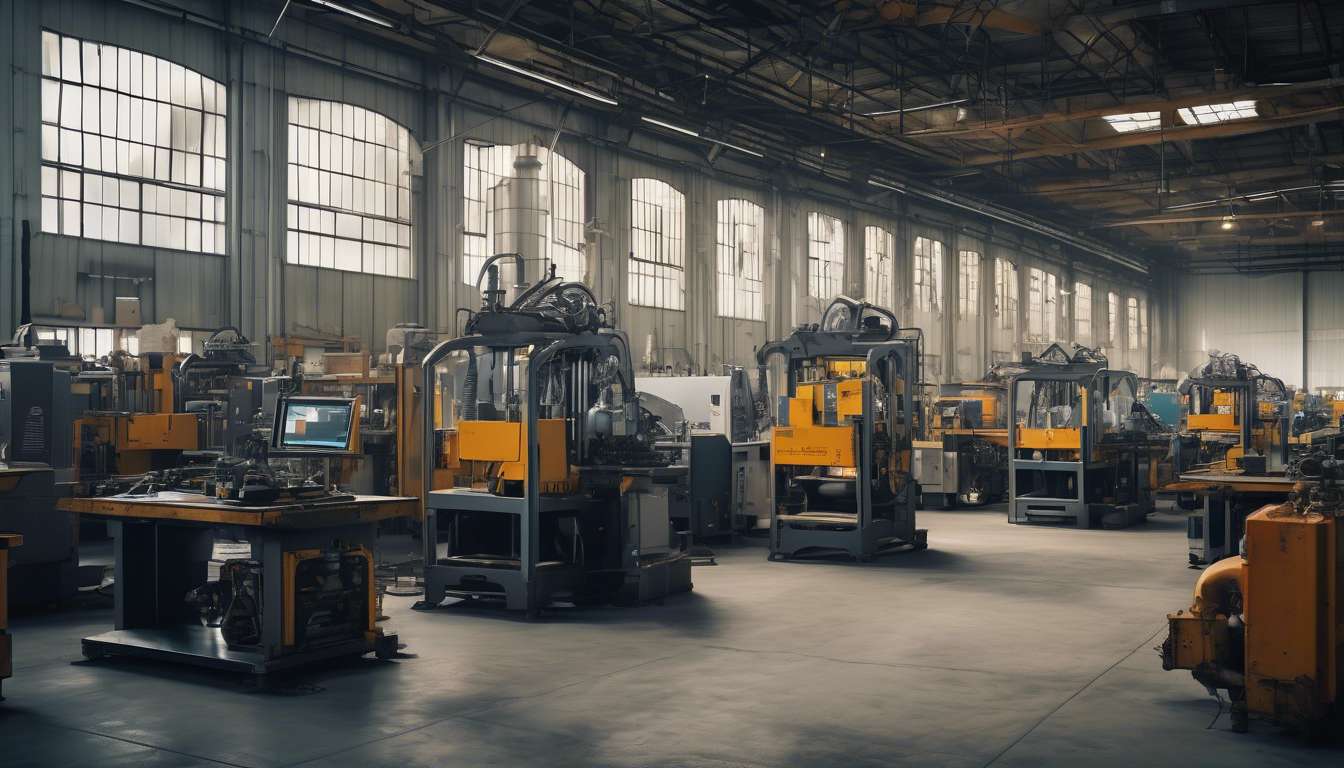
Every industrial facility operates within a distinctive framework, characterized by its unique combination of processes, equipment, and operational goals. This uniqueness stems from a variety of factors, including:
- Specific industry sector
- Geographic location
- Regulatory requirements
- Technological advancements
As such, the maintenance and servicing needs of each facility are inherently diverse and demand a tailored approach to ensure optimal performance and compliance.
Understanding the individual characteristics of industrial facilities is crucial for the development of effective service strategies that:
- Enhance efficiency
- Reduce downtime
- Promote safety
Customized service plans, which consider the facility’s particular operational dynamics, can significantly contribute to:
- Extending the lifespan of equipment
- Minimizing operational disruptions
- Achieving sustainability goals
This article explores the importance of recognizing the distinct needs of industrial facilities and discusses strategies for developing service solutions that are aligned with the unique demands of different industrial environments.
It emphasizes the role of specialized expertise and adaptive service methodologies in achieving these objectives.
Atlas Copco provides the specialized expertise and adaptive service methodologies essential for crafting customized service solutions that meet the unique demands of diverse industrial environments.
Factors influencing industrial facility uniqueness
Several factors contribute to the uniqueness of each industrial facility, shaping its specific operational needs and challenges.
Customization plays a critical role as facilities are often designed to meet the specific demands of their industry sector. This customization ensures that the:
- Infrastructure
- Machinery
- Workflows
align with the unique production processes and goals.
Maintenance is another pivotal factor, as the longevity and efficiency of these facilities depend on regular upkeep. Effective maintenance strategies ensure:
- Minimal downtime
- Optimal performance
which is essential for maintaining competitiveness.
Sustainability has emerged as a significant influence, as industries increasingly prioritize environmentally conscious operations. Facilities that integrate sustainable practices:
- Reduce their environmental impact
- Comply with regulatory standards
- Enhance their reputation within the community
The integration of energy-efficient systems and waste reduction initiatives contributes to both cost savings and environmental stewardship.
These factors collectively underscore the necessity for tailored solutions that address the distinct characteristics of each industrial facility.
Importance of tailored service approaches
A tailored service approach is crucial for effectively addressing the specific needs and challenges of individual industrial facilities. Customization allows for the development of service strategies that align with the unique operational demands and infrastructure of each facility.
This approach ensures that maintenance activities are precisely targeted, reducing downtime and enhancing operational efficiency. Facilities that embrace customized service solutions gain a competitive edge by:
- Optimizing performance
- Extending equipment lifespan
In addition, tailored services contribute significantly to sustainability objectives. By focusing on specific requirements, these services facilitate:
- Resource efficiency
- Minimizing waste
- Reducing energy consumption
Customized maintenance programs also support sustainability by ensuring that equipment operates at peak efficiency, thereby reducing the environmental impact.
Through such targeted strategies, industrial facilities can foster a sense of community and shared purpose among stakeholders, reinforcing their commitment to sustainable practices. Consequently, a tailored service approach not only addresses immediate operational needs but also aligns with broader environmental and community goals.
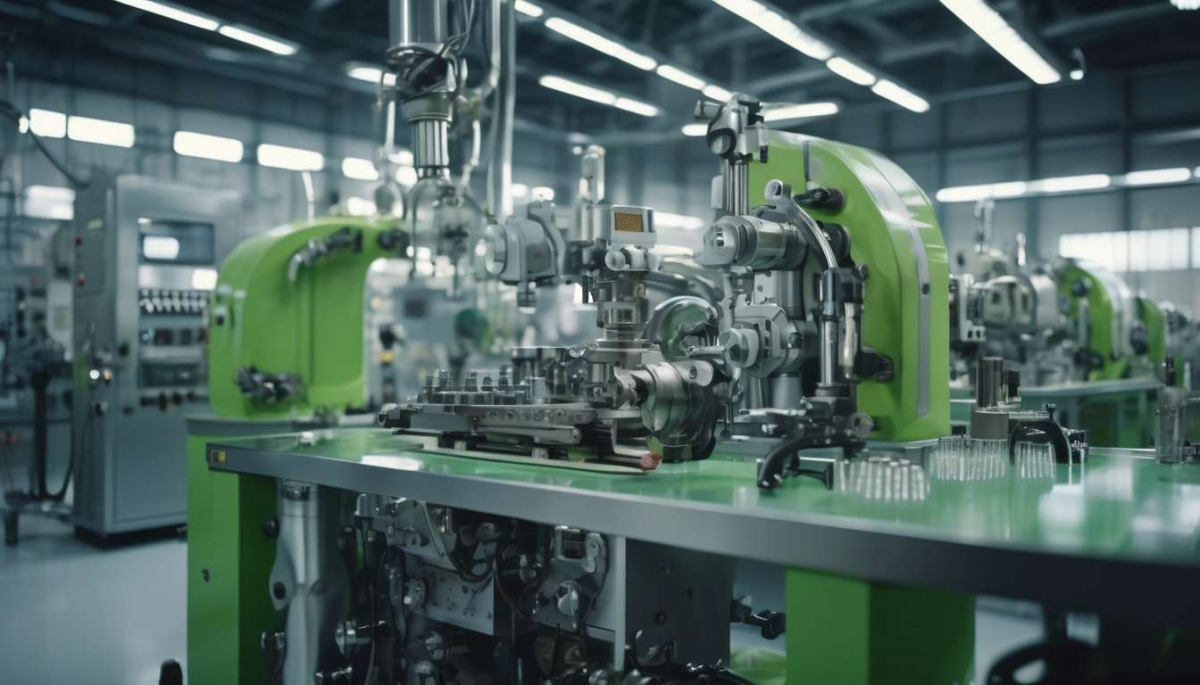
Benefits of facility-specific service strategies
Facility-specific service strategies deliver numerous advantages by enhancing operational efficiency and reducing costs.
By focusing on customization, facilities can tailor their maintenance efforts to address unique operational challenges, ensuring that machinery and equipment operate at peak performance. This approach minimizes downtime and maximizes productivity, fostering a sense of community and belonging among stakeholders who see their specific needs being addressed.
Tailored maintenance strategies contribute to sustainability by optimizing resource use and minimizing waste.
- Through regular, customized maintenance, facilities can extend the life of their equipment.
- This reduces the need for frequent replacements and lessens environmental impact.
Adopting sustainable practices not only benefits the environment but also aligns with the growing expectations of stakeholders who value corporate responsibility.
Facility-specific strategies also allow for the integration of innovative technologies and best practices that enhance operational capabilities.
This adaptability supports a cohesive and forward-thinking community within the industrial sector, fostering a shared commitment to progress and efficiency.
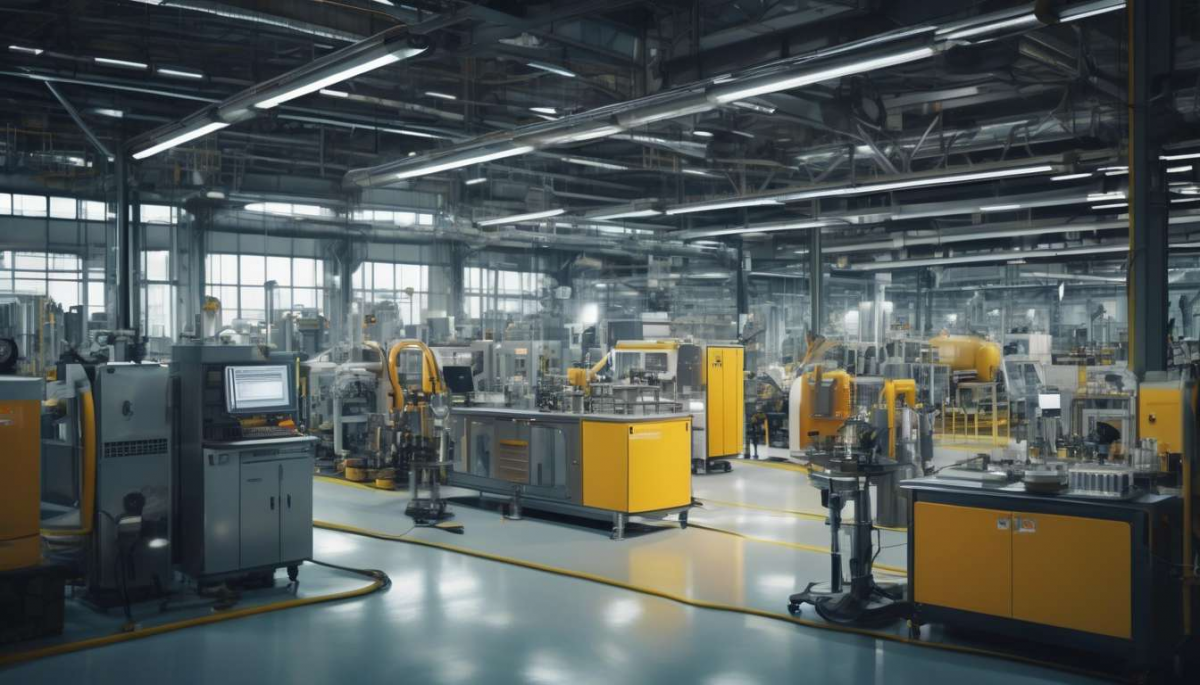
Enhancing equipment longevity through customized plans
Implementing tailored maintenance plans significantly extends equipment longevity by addressing specific operational needs and challenges. Each industrial facility presents unique conditions, requiring a customized approach to maintenance that ensures optimal performance and durability.
Customization allows for:
- Identification of potential issues before they evolve into significant problems
- Promotion of sustainability in operations
- Reduction in the likelihood of equipment failure
A comprehensive understanding of the facility’s operational dynamics facilitates:
- Development of maintenance strategies that align with both current and future requirements
- Enhancement of equipment life
- Support for the integration of sustainable practices
- Contribution to overall efficiency and cost-effectiveness
By focusing on the specific needs of each facility, customized maintenance plans foster a sense of community through shared goals of longevity and reliability.
Incorporating customization into maintenance regimes underscores:
- The importance of tailored service strategies
- Resonance with the facility’s unique operational environment
- Ensuring a harmonious relationship between equipment performance and the overarching goals of sustainability
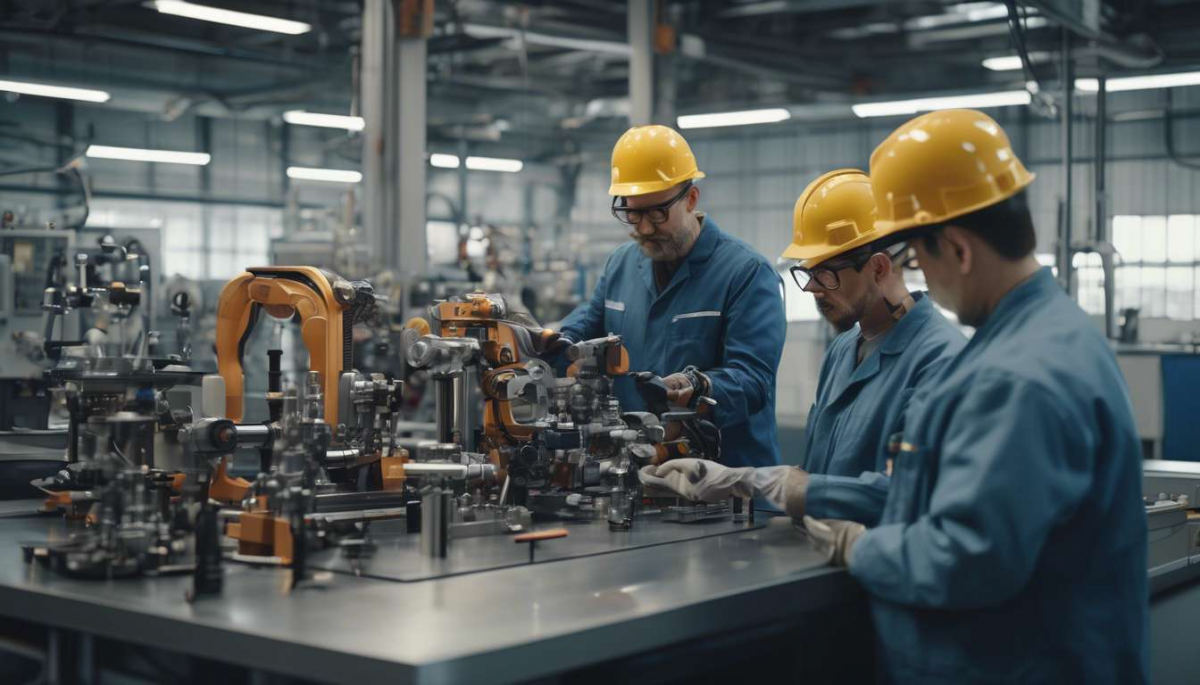
Minimizing disruptions with personalized maintenance
Personalized Maintenance Plans
Personalized maintenance plans reduce operational disruptions by preemptively addressing equipment needs. By incorporating customization into maintenance strategies, facilities can tailor preventive measures to the specific requirements of their machinery.
This approach ensures that potential issues are identified and resolved before they escalate into significant problems, thereby enhancing reliability and operational efficiency. In a community that values collaboration and shared success, adopting such proactive measures fosters a sense of unity and shared purpose among stakeholders.
Customization Beyond Routine Checks
Customization in maintenance extends beyond routine checks and repairs, aiming to create a sustainable operational environment. By focusing on the unique characteristics of each facility, maintenance plans can be aligned with long-term sustainability goals, reducing energy consumption and minimizing waste.
This not only benefits the environment but also contributes to the overall cost-effectiveness of operations.
Benefits of Personalized Maintenance
As facilities strive for excellence, personalized maintenance emerges as a critical component in achieving uninterrupted productivity and fostering a culture of continuous improvement within the industrial landscape.
- Enhances reliability and efficiency
- Aligns with sustainability goals
- Reduces energy consumption
- Minimizes waste
- Contributes to cost-effectiveness
- Fosters continuous improvement and collaboration
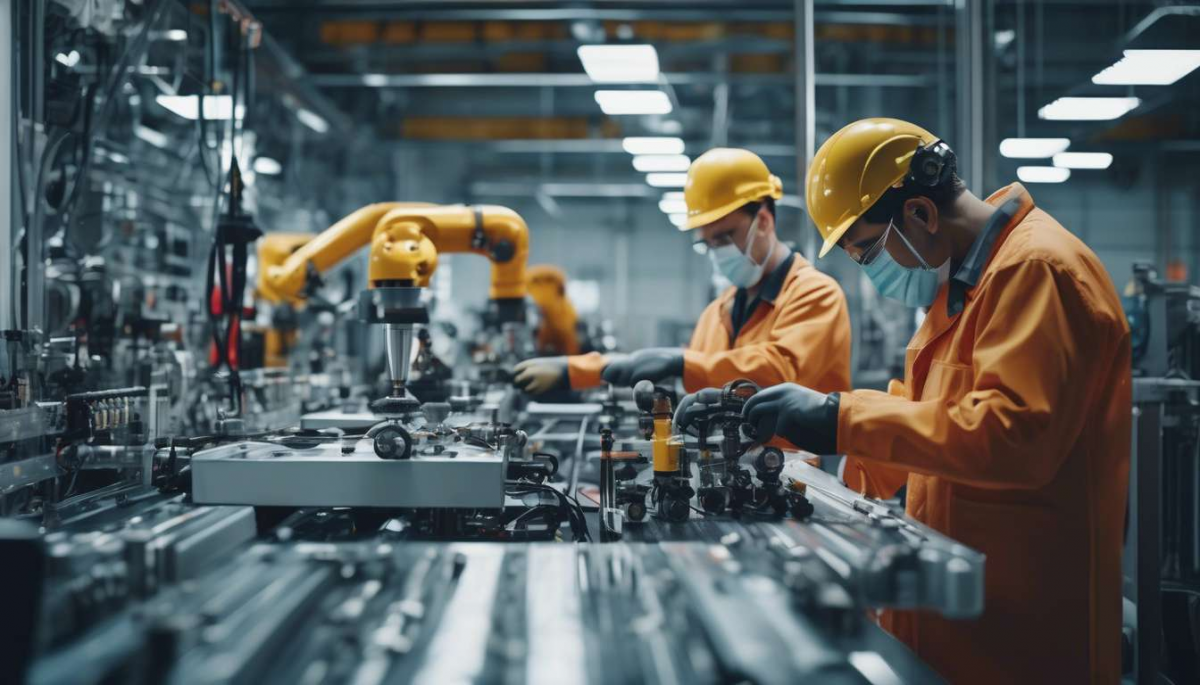
Achieving sustainability objectives through specialized services
Leveraging specialized services is essential for industrial facilities striving to meet sustainability objectives efficiently and effectively.
Customization of these services allows facilities to tailor solutions that align with specific sustainability goals. This fosters a sense of community among stakeholders committed to environmental stewardship. By aligning services with unique operational needs, facilities can achieve:
- Greater efficiency in resource utilization
- A reduction in waste
- Minimization of environmental impact
Maintenance plays a pivotal role in this process by ensuring that machinery and equipment operate at peak performance. This:
- Extends their lifespan
- Reduces the need for resource-intensive replacements
- Minimizes downtime
- Contributes to overall operational excellence
Adopting specialized services ensures compliance with evolving environmental regulations, reinforcing the facility’s commitment to sustainability.
By integrating sustainability into the core operational strategy, facilities reinforce their role in a larger community dedicated to preserving the environment. This collective effort enhances both the facility’s reputation and its contribution to a sustainable future.